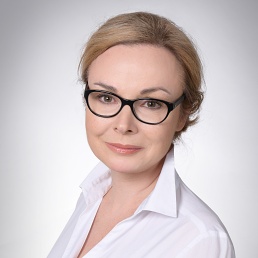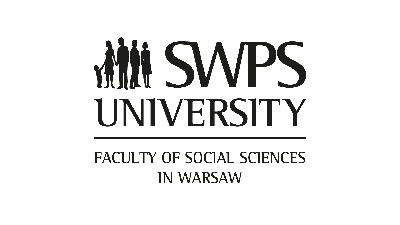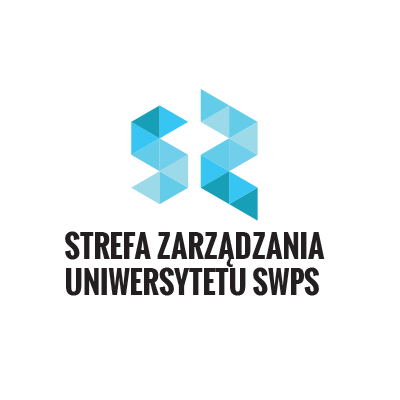Nowadays, in building development strategies of public and private institutions the Quality of Life paradigm is replacing the Economic Development paradigm, which was dominant in the 20th century. This trend was foreseen by Professor Stanisław Kiełczewski, the precursor of the Quality of Life research, from the Wrocław University of Economics and Business. Today, we already know that due to factors such as the diminishing likelihood of increased effectiveness, market saturation, and degradation of natural environment, the possibilities of further economic growth will be exhausted in Europe within a decade.
Symposium
QUALITY OF LIFE PARADIGMS
in shaping development strategies of public institutions and economic organizations
Organizer: Faculty of Social Sciences in Warsaw
Nowadays, in building development strategies of public and private institutions the Quality of Life paradigm is replacing the Economic Development paradigm, which was dominant in the 20th century. This trend was foreseen by Professor Stanisław Kiełczewski, the precursor of the Quality of Life research, from the Wrocław University of Economics and Business. Today, we already know that due to factors such as the diminishing likelihood of increased effectiveness, market saturation, and degradation of natural environment, the possibilities of further economic growth will be exhausted in Europe within a decade. Maintaining the Economic Growth Paradigm will result in taking on more debt, lowering environmental standards, prolonging work hours, and limiting social safety net. Therefore citizen dissatisfaction and social conflicts are on the rise and, as a consequence, parties referring to the Economic Growth Paradigm are voted down; hence the Economic Growth Paradigm stops being the leading factor in building development strategies. The technological revolution of the previous century, exacerbated by the COVID-19 pandemic, has made it even more visible.
These significant issues will be discussed during our Symposium: “Quality of Life Paradigm in shaping development strategies of public institutions and economic organizations in the era of digitalization”.
The event will be presented in a hybrid format (online and on-site at SWPS University in Warsaw). Please register below ». Link to the online sessions will be provided to registered participants by e-mail.
Registration deadline: September 27, 2021.
September 28, 2021
9:00–17:00
SWPS University Warsaw/online
Topics and Goals of the Conference
The scientific foundations that shape the Quality of Life Paradigm require an interdisciplinary approach, which takes into consideration a broad range of knowledge from the discipline of social sciences and calls for supplementation of the econometric tools that have been used in the main stream of strategic research so far, with behavioral insights. Moreover, a collaboration of academia, public administration, and private companies in the implementation of the Quality of Life Paradigm, as a marker of development strategies, is particularly important.
According to the nature of the Quality of Life Paradigm, the scientific discourse and research must be conducted in a triad of development goals of public administration, private companies, and individuals.
Following the directives of SWPS University’s development strategy, which has been based on the Quality of Life Paradigm, and which has been implemented by the Faculty of Social Sciences in Warsaw, and other SWPS University’s organizational units, the goal of the research team is to support this process in the context of scientific discourse and the implementation of teaching processes at our University.
The biggest challenge that we face today is achieving a consensus with respect to the metrics of quality of life, and defining adequate instruments and tools of their implementation. Further research requires establishing an interdisciplinary research center, coordinated by scientists representing politics, administration and public policy studies, and include the output of management and quality studies, and psychology.
The center will develop a road map of tasks aiming to effectively influence the strategies of public and private institutions with respect to the improvement of the Quality of Life.
The symposium is aligned with the direction of the quality of life research that studies the issue from two different perspectives: economic – referencing the initiatives initiated nearly 50 years ago at the Department of Strategic Management of the former Akademia Ekonomiczna we Wrocławiu (today the Wrocław University of Economics and Business), and psychological – undertaken by various research centers in Poland, such as the Department of Psychology at the Jan Dlugosz University in Częstochowa and Faculties of Psychology at SWPS University.
Interdisciplinary Approach to Shaping Development Processes
An important message of our symposium has been expressed by Professor Stanisław Kiełczewski, the precursor of research on the Quality of Life: “Currently, there is no universally accepted paradigm concerning the role of public administration and the market in shaping of development processes, and as a consequence, there is no paradigm concerning company theory, economic and social policies, political sciences, management, finance, banking, ethics, sociology, psychology and other social sciences. Different hypotheses, presented as scientific theories, are rather of a minor significance, and do not withstand any verification that goes beyond the framework of assumptions presented by the particular model.
Research cannot be limited to the particular disciplines included in the accepted classification of social sciences. It cannot be limited, because to solve real development problems a multidisciplinary approach is a must.
Drawing on the existing achievements of social sciences concerning shaping development strategies of public institutions and economic organizations, I intend to build an interdisciplinary, trans-sector, and trans-border community of scientists and practitioners specializing in politics, administration and public policy studies, management, economics, and social psychology, working in synergy to develop a research and implementation plan, based on the Quality of Life Paradigm in the era of digitalization.
Katarzyna B. Wojtkiewicz, Ph.D., Assistant Professor, Faculty of Social Sciences, SWPS University
Program
8.30 - 9:00 Guest registration
9.00 - 10.15 Opening Session
9.00 - 9.15 Opening remarks
9.15 - 9.30 Pro memoriam – Professor Stanisław Kiełczewski (1930-2010), the precursor of research on building development strategies based on the Quality of Life Paradigm
09.30 - 10.00 Key-note speech: Societal reaction to the Covid-19 pandemic. US and Japan comparison – Professor Hiroyuki Itami, President of the International University of Japan (presentation in English)
10.00 - 10.15 Ewolucja paradygmatu kształtowania strategii rozwojowych instytucji publicznych i prywatnych w dobie dygitalizacji (Evolution of the paradigm concerning shaping development strategies of public and private instituitons in the era of digitalization) – Katarzyna B. Wojtkiewicz, Ph.D., Assistant Professor, Faculty of Social Sciences, SWPS University (presentation in Polish)
10.15 - 11.00 Plenary Session
10.15 Science – Society – Economy or Why do we Need Paradigm?
- Moderators: Katarzyna Januszkiewicz, Professor, Dean of the Faculty of Social Sciences, SWPS University
- Mikołaj Cześnik, Professor, Director of the Institute of Social Sciences, SWPS University
- Andrzej Kondratowicz, Professor, economist, member of Komitet Prognoz Polska 2000 Plus (Poland 2000 Plus Committee) at the Presidium of the Polish Academy of Sciences (PAN).
11.00 - 11.20 Break
11.20 - 11.40 H2020 EURHISFIRM Project Report: Sound scientific evidence by Big Data to foster inclusive long-term growth and prevent social inequality – Professor Wolfgang Koenig, Goethe University Frankfurt am Main (presentation in English)
11.40 - 13.00 Paper Presentation Session
- Zmiana paradygmatu rozwoju społecznego z perspektywy teorii złożoności (A change of social development paradigm from the perspective of the Complexity Theory – Igor Lyubashenko, Professor, SWPS University (presentation in Polish)
- Kluczowe czynniki warunkujące realizację celów strategicznych muzeów i miejsc pamięci byłych niemieckich nazistowskich obozów koncentracyjnych i zagłady (Key factors determining the achievement of strategic goals of museums and memorial sites of the former Nazi German concentration and extermination camps) (external grant 2018-2020) – Professor Adam Szpaderski, SWPS University (presentation in Polish)
- Finanse dla AI czy AI dla finansów? Dokąd zmierzamy ze sztuczną inteligencją w sektorze finansowym? (Finance for AI or AI for finance? Where are we going with Artificial Intelligence in the finance sector? – Michał Nowakowski, Ph.D. (presentation in Polish)
- Putting the “We” Into Well-being: Using Collectivism-Themed Measures of Well-Being Attenuates Well-being’s Association With Individualism – Magdalena Łużniak-Piecha, Ph.D. Uniwersytet SWPS (presentation in English)
- Identyfikacja psychologicznych i społecznych potrzeb młodzieży uczęszczającej do szkół średnich, która wykazuje duże aspiracje edukacyjne i zawodowe oraz analiza wpływu jaki organizacja wywiera na dobrostan grupy badanej (Identification of psychological and social needs of secondary school youth, who show great aspirations in educational and professional areas, and the analysis of the influence of an organization on the wellbeing of the examined group) (grant INS, 2019–2020), Katarzyna Wojtkiewicz, Ph.D., SWPS University (presentation in Polish).
- Predispositions to performing highly routinized work and their impact on the quality of life – Wojciech Karczewski, Ph.D., SWPS University
13.00–14.00 Lunch
14.00 - 16.00 Panel Discussions
The Essence of Strategy is Choosing What Not to Do (Porter M., 2010), or where do strategies lead us?
- Moderator: Magdalena Łużniak-Piecha, Ph.D., psychologist, Vice-Dean for Student Affairs, Faculty of Social Sciences, SWPS University
- Prof. Dr. Wolfgang Koenig, Goethe University Frankfurt am Main
- Michał Nowakowski, Ph.D., NewTech and Regulatory Advisor, university lecturer
A panel discussion, including representatives of public institutions, private companies, youth organizations, and the participants of the symposium (online and on campus).
- Moderator: Katarzyna Wojtkiewicz, Ph.D./ Assistant Professor, SWPS University
16.00 Summary
Summary of the symposium – Profesor Adam Szpaderski, Head of the Center for Research on the Economics of Memorial Sites at SWPS University
17.00 Closing remarks
Keynote Speakers
Professor Hiroyuki Itami – is the President of the International University of Japan, a former Dean of the Trade Department of the Hitotsubashi University in Tokyo (1994-1996), where he obtained his undergraduate and graduate diplomas. In 1972, following a Fullbright scholarship, he received a doctorate at the Industrial Administration Department of Carnegie-Mellon University in the United States. Over the years he has held numerous positions, including Dean of the Graduate School of Management of Technology and Science of Tokyo University of Science, and a visiting professor at the Graduate School of Business at Stanford University. In 2010, Professor Itami was awarded the title of Doctor Honoris Causa of the Wrocław University of Economics and Business. More information »
Professor Wolfgang König – teaches Information Systems (Business Informatics) at the Faculty of Economics and Business Administration of Goethe University Frankfurt am Main, in Germany. His research interests focus on standards, data organization and data harmonization, complemented by business strategies and digitization. See full bio »
.
Honorary Committee
- Andrzej and Jacek Kiełczewscy – sons of Professor Stanisław Kiełczewski
- Professor Aleksandra Cisłak-Wójcik – Vice-Rector for Research, SWPS University
- Professor Andrzej Kaleta – Rector of Wrocław University of Economics and Business, Head of the Department of Strategic Planning
- Professor Hiroyuki Itami – President of the International University of Japan
- Professor Krystyna Moszkowicz – Wrocław University of Economics and Business
- Professor Leon Jakubów – Wrocław University of Economics and Business
Scientific Committee
Professor Katarzyna Januszkiewicz – Dean of the Faculty of Social Sciences at SWPS University, Head of the Department of Management. She specializes in organizational behavior, for example in behavior change in organizations (behavior flexibility, career paradigm shift, and diversity at the work place), as well as research methodology in social aspects of management (professionalization of methods and research techniques).
Professor Mikołaj Cześnik – political scientist, Director of the Institute of Social Sciences, and lecturer at the Faculty of Social Sciences of SWPS University. He specializes in the analysis of political systems, in particular democracy and human behavior in politics. He researches political and social choices and attitudes. Professor Cześnik also comments regularly on current public and political affairs in the Polish media.
.
Professor Adam Szpaderski – Head of the Center for Research on the Economics of Memorial Sites, at the Institute of Social Sciences, and lecturer at the Faculty of Social Sciences of SWPS University. His research interests include the core and the nature of leadership and management, including business management and the methodology of management studies. Author of the praxeological concept of management based on reciprocity, sources of power and managerial functions. He also developed the concept of integrated management studies. Additionally, he proposed a solution for solving the problem of structure fragmentation in management studies, in the area of economy.
Head of the Symposium

Katarzyna Wojtkiewicz, Ph.D. – holds a doctoral degree in social sciences in the discipline of management and quality studies. She is a lawyer, economist, and a manager. She holds a doctoral degree in Information Technology Management from the University of Warsaw, a Master of Laws degree (LL.M.), and a degree in Business Informatics from the University of Bamberg in Germany.
In 2017, she was nominated for a prestigious German Enterprise Award, granted by the Worldwide Business Review, for her achievements in defining business architecture and implementation of (Data) Governance projects at an EU agency.
For the past few years, she has been researching the “Quality of Life Paradigm in shaping development strategies of public institutions and economic organizations in the era of digitalization”. She researches strategic choices made by individuals, companies, and societies, and analyzes how these decisions translate into decision making processes, in particular in digital aspects. In other words, she constantly is looking for answers to the question: Why?
Organizer

Event under the auspices of:
Professor Roman Cieślak, Rector of SWPS University
SWPS University's Institute of Social Sciences
Media Support

Date and Location
September 28, 2021, 9.00–17.00
Professor Tomaszewski Lecture Hall/online
SWPS Uniwersity
Chodakowska 19/31, 03-815 Warsaw
Information about accommodation and travel will be sent to participants by mail.
Contact
Registration: This email address is being protected from spambots. You need JavaScript enabled to view it.
For conference materials and more information, please contact:
Katarzyna B. Wojtkiewicz, Ph.D.
Faculty of Social Sciences in Warsaw, SWPS University
e-mail: This email address is being protected from spambots. You need JavaScript enabled to view it.